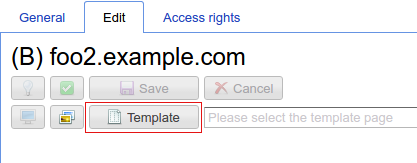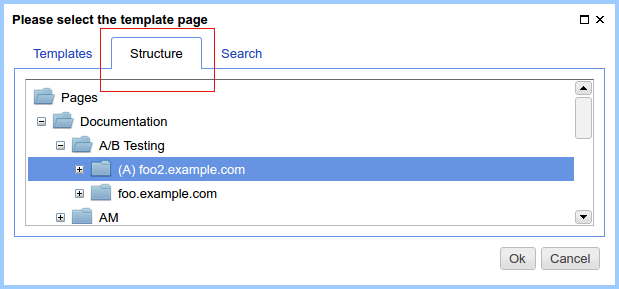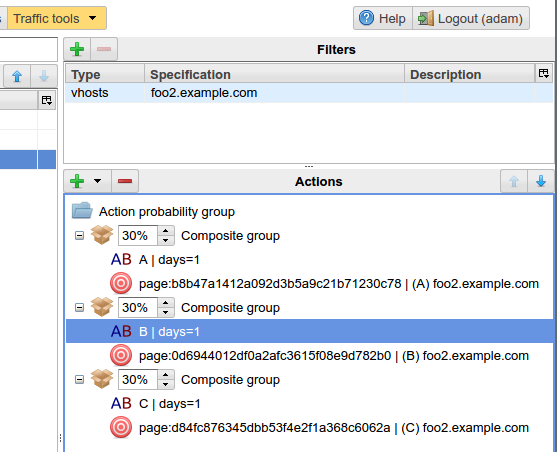Example of A/B testing through pages inheritance¶
There is a significant drawback in the previous A/B testing example: if the number of A/B modes is more than two, we need to defined attributes specific for every A/B mode, it leads to a big set of similar attributes and can be very heavy and awkward.
More convenient way is to implement A/B testing through page inheritance. Create a base page for particular A/B mode and other A/B modes can be implemented within pages which are inherited from a base page.

Pages inheritance for A/B/C testing
Let’s demonstrate this example in more detail.
Creating a base page¶
Base page markup:
<html>
<body>
<h2>${asm('title')}</h2>
<img src="$!{((Image) asm('image1')).link}"></img>
<br><br>
<img src="$!{((Image) asm('image2')).link}"></img>
</body>
</html>

Base page in the edit mode
Creating child pages¶
Create two pages for modes B and C and specify the base page for the mode A as the parent page for them.
- Right-click Create:

- Open the dialog to select a page template:

- Select the tab Structure and the parent page (A) foo.example.com:

- Change the page content in the child page in accordance with an mode B. The page title and two images.
Similarly we proceed with the mode C.
This approach to create different variants of pages for A/B modes, is significantly more flexible then the use of different attributes for each option and it is very simple to be implemented for relatively complex changes in every variant.
Setting MTT rules for pages¶
Let that the probabilities of A,B,C mode selection are equal. Then routing rules can be configured as follows:

Equal probabilities for A, B, C modes